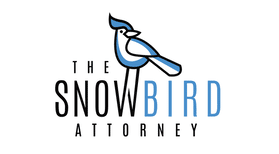
Social media use after a collision especially if you have an active social media life, can be a difficult change for you. Your first inclination after you have been involved in a motor vehicle crash may be to update your status and/or your followers to inform everyone of the crash assuring them that you are okay. While this may help alleviate your friends and followers concerns, it will also make the insurance company question whether you are really seriously injured. When you talk about the collision on Facebook or other social media sites, you are making essentially public statements that may be used to undermine your claim.
It is important to be aware that posting online while you recover can result in significant harm to your case. That advice applies to Facebook as well as other social media such as Twitter, Instagram or Tick Tock. After your collision, you want to do everything in your power to present the best possible case and to obtain compensation for your injuries. You might wonder what to say online after your collision. The answer is simple: say nothing and post nothing.
Five Ways Social Media Can Affect Your Claim
Insurance companies monitor social media sites. If you file a claim, chances are that someone from the insurance company or the opposing party will search you out online. Here are just a few of the ways your social media posts could damage your case:
- Information about your activities can be used to claim you’re not injured. A post showing you in your garden, on vacation, or even just hanging out at a backyard barbecue might be used as evidence that your injuries are not as bad as you claim – even if you were only standing in the garden for a few minutes or were struggling with chronic pain to get through a family gathering. I know it sounds ridiculous but it’s true.
- Comments about the collision on social media could simply be casual comments about what happened in the collision, like “I never saw the other car coming” or “I need new car anyway” can be interpreted by insurance adjusters and opposing lawyers to imply you are admitting fault, even when you are not legally responsible for the collision.
- Posting “too much” can be used to claim you didn’t suffer emotional distress. Auto collisions can be terrifying and the pain and emotional trauma of serious injuries can be devastating. If you are taking part on your social media streams like nothing happened, an insurance company may try to argue that the collision did not affect you as much as you claim it did and therefore you do not deserve compensation for emotional trauma.
- Talking about your case on social media is a big “no no”. When you share information about your case on social media, it becomes public knowledge. Any confidentiality protections such as those you have when you talk to your lawyer will no longer apply. Because auto collisions often involve sensitive medical and financial information, it is best to keep updates on your case to yourself. Even if you believe you have your settings on social media set to “private” or “friends only,” anything you post to these sites has the potential to become public – and to be seen by insurance adjusters or other people in a position to use this information to deny your claim.
Say “No” to Photos
You do not want the other side in your claim to have access to photos on any social media accounts. If you keep your accounts active, be sure that you have privacy settings in place to prevent others from tagging images of you, or mentioning you on any social media sites. Remind them nicely that you do not want anything posted on your social media sites or theirs.
The bottom line is that it is best to keep all details about the collision, your injuries and the claim to yourself. Remember, the less you say, the better off your claim will be. Always remember that your first priority is your recovery and surfing social media may affect your well being as you try your best to heal.
The Crash Support Network is a unique website consisting of an online support group, a Crash Survivor Blog written by a survivor, our Sharing Our Recovery Newsletter, informative articles and a Virtual Crash Memorial. Our website is based on relationship-building and puts the needs of survivors first by creating a helpful resource for victims and survivors of motor vehicle crashes.



